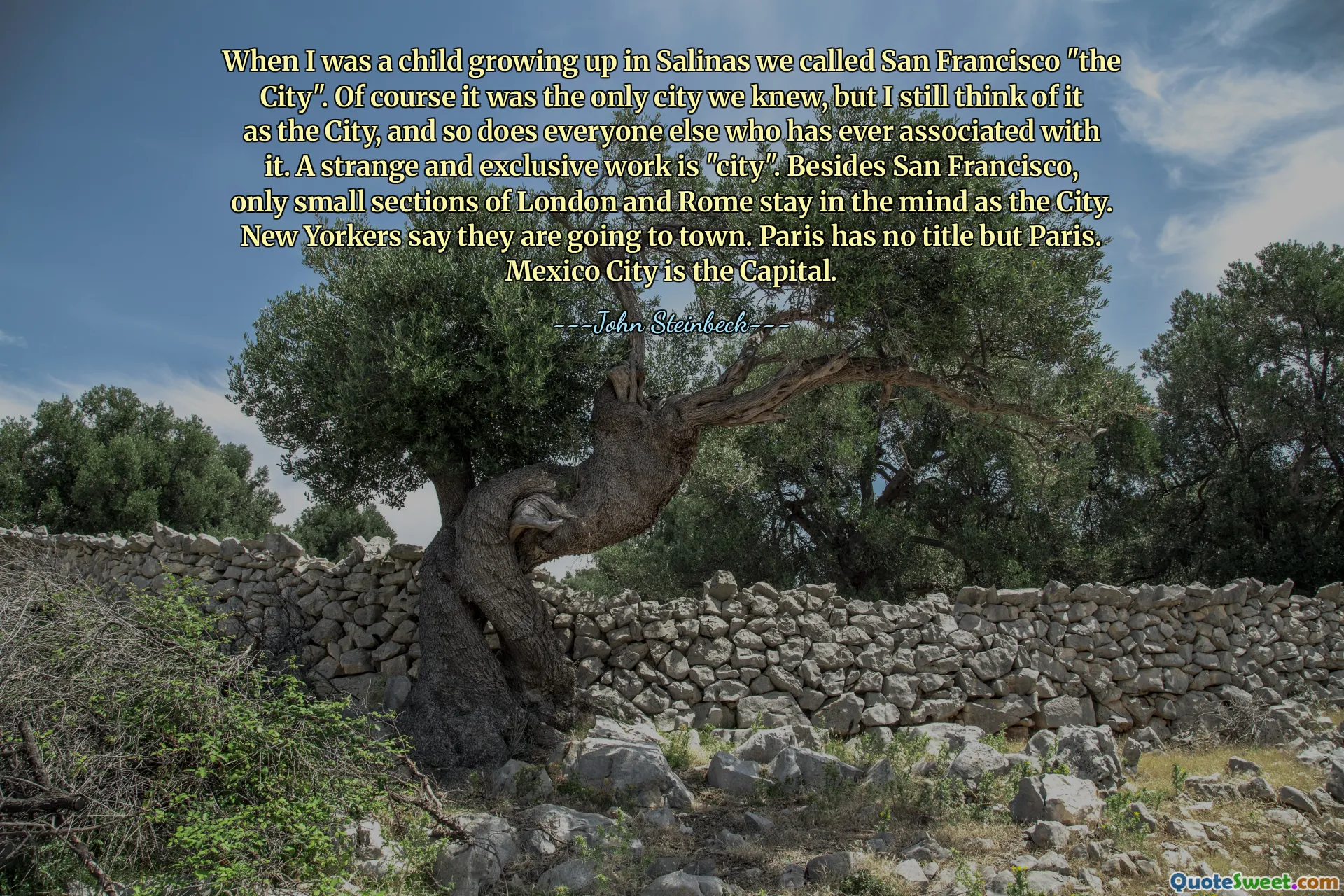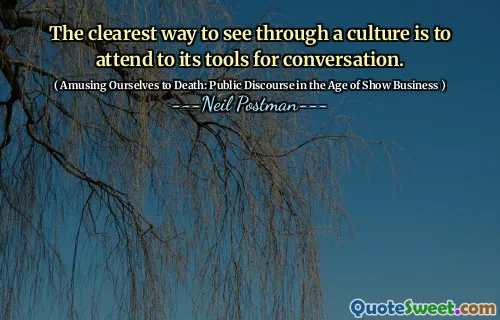
When I was a child growing up in Salinas we called San Francisco "the City". Of course it was the only city we knew, but I still think of it as the City, and so does everyone else who has ever associated with it. A strange and exclusive work is "city". Besides San Francisco, only small sections of London and Rome stay in the mind as the City. New Yorkers say they are going to town. Paris has no title but Paris. Mexico City is the Capital.
This quote highlights the unique cultural and psychological significance that certain urban centers hold in our collective consciousness. San Francisco, in the author's memories, stands apart from other cities; it's not just a geographical location but a symbol of identity and local pride. The phrase "the City" conveys a sense of familiarity, exclusivity, and admiration. Interestingly, the author points out how different cities are addressed colloquially: New Yorkers refer to going "to town," emphasizing perhaps the informal and communal nature of their urban experience. Conversely, Paris is simply known as "Paris," reflecting its unchallenged cultural prominence. Mexico City, being the capital, emphasizes official recognition. The notion that only a few cities have a special linguistic status suggests that these places serve as cultural touchstones—metaphors of where individuals belong, their history, and their shared memories. Such perceptions shape our understanding of place, influencing identity, social bonds, and even aspirations. It also reveals a universal tendency: humans attach significance to certain cities because of history, personal relationships, or cultural symbolism. The idea that "city" is a "strange and exclusive work" further accentuates the collective attachment, almost as if these places are crafted into myths over time. Overall, this reflection underscores the power of cities in defining personal and collective identities—how they are perceived, named, and remembered—forming an essential part of our sense of belonging and history.










